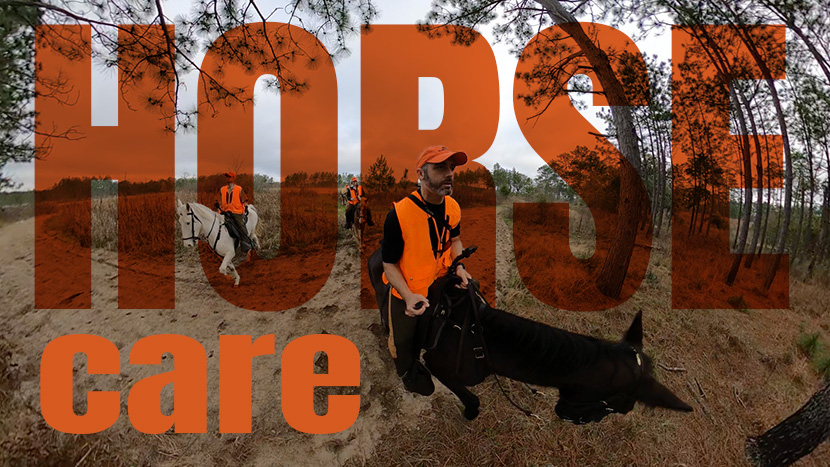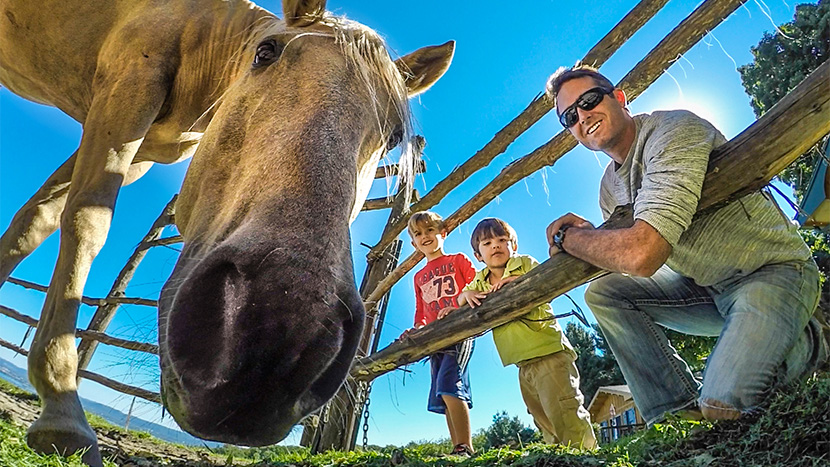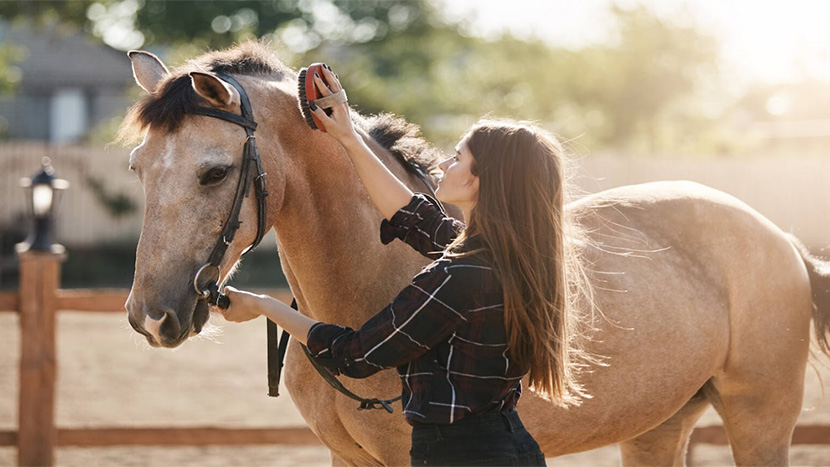Equine Science 101: 5 Basics Of Horse Care
There’s no doubt that having a horse is a thing of prestige, not to mention how fun it is to care for and have one around. But we all know that to ensure the fun and prestige don’t wane, one needs to properly care for the source of it all, which is the horse.

Caring for a horse is no joke and can be quite overwhelming. A horse’s diet and needs aren’t the same as your regular pet’s, so you need to pay close attention to it all. Are you planning to get one or two horses soon but don’t know the first thing about caring for a horse? Or do you have a horse but you’re not sure if you’re doing the right thing when caring for your horse?
Whether you belong to the former or the latter category, this piece will serve as a guide that’ll include everything possible, from feeding to housing, hygiene, and so much more. For those about to start their horse-care journey, pay close attention; and for those who already have an idea of how it goes, this should serve as a revision.
1. Basic Needs
To begin on the right foot with your equine friend, the first basic thing to do is ensure you have all the basic needs or requirements to cater for and maintain a horse through all its life stages. These basic needs include:
- A safe pasture area free from hazards like rusty machinery, loose wire fences, or holes that the horse could get trapped in, causing anything from scratches to deep cuts or worse
- Shelter to protect from harsh weather conditions with a clean and dry area to lay down whenever needed
- Grazing land with chemical-free grass or a good supply of quality hay
- Access to fresh and clean water
- A safe fenced area made from horse-friendly materials like mesh wire, wood, vinyl, or plastic
- Companionship from other animals or people as well as daily monitoring
With these in place and set in motion, you can now begin your journey to caring for your horse adequately.

2. Feeding
Just like humans, your horse also requires adequate supply and access to healthy food and clean water for sustenance. An inadequate supply of proper food with the required vitamin supplements as well as water can lead to malnourishment, dehydration, as well as growth-related ailments like joint issues in horses and more.
An adequate diet for a horse should include quality roughage from grass or hay when the grass isn’t available, as well as grains and supplements. As an equine owner, you must be sure to avoid horse feeding mistakes like feeding your horse with bad hay, chemical-treated grass, as well as all sorts of weeds like couch grass, fireweed, and others. All of these can drastically affect your horse’s lungs and bring other complications.
To ensure that your horse is never dehydrated, you need a constant supply of clean water. There’s a strong emphasis on this because dirty water often has germs, viruses, and bacteria that can affect the health of your horse. Hence, make sure that your horse’s water trough is always clean and filled with clean and safe water. Plus, a horse consumes a lot of water, about 5-10 gallons a day, so always keep that water coming.
3. Shelter: Stable Or Boarding
Horses are free animals that love running wild. They’d gladly spend most of their day outdoors, but that doesn’t mean they don’t require a safe area for them to rest and get shade from the sun’s heat or the cold.
To house your horse in a safe and suitable environment, you should build a stable designed for the height of your horse, about 12×12 ft. for average-sized horses and 12×14 ft. for large-sized horses.
Make sure the stable:
- Has enough headspace for your horse
- Has proper ventilation
- Must be free from protruding or sharp objects
- Must be easy to clean and maintain
If you feel you don’t have the facilities to shelter or house your horse, you can make use of boarding stables. These boarding stables offer a variety of services from full boarding to pasture boarding, part boarding, self-care boarding, and so on. Boarding stables also offer services beyond sheltering your horses; some also see to the daily needs of the horse and can serve as a full-on care home for your horse, just like a boarding school for horses.

4. Grooming And Health Care Needs
Your horse needs to be in top shape at all times with impeccable health. That’s why when caring for your horse, you must include proper grooming and healthcare needs on the list. It’s advisable to groom your horse before every riding or walking activity, and it should include proper care of the hooves and skin.
While grooming serves as a form of daily external health check, your horses still require routine healthcare, which is monthly or annually routine care. Some aspects of general healthcare such as heart rate, respiratory rate, temperature, and others can be taken care of by you, but others such as teeth checks, immunizations, diseases or even birthing require a professional equine vet to take charge. In addition, always have a horse first aid kit available for any emergencies.
5. Conducive Environment
Lastly, your horse needs a conducive and safe environment to thrive. Be sure to provide a safe, friendly, and natural environment for them to live in. Make sure they have companions to keep them company as, like humans, they also feel lonely. Provide all necessary needs and keep them busy to prevent boredom.

Conclusion
Whether you’re a first-time horse owner or someone already into it, you know that caring for a horse isn’t easy, but it’s fun once you get the hang of it. With the guide above, we hope you now have an idea of what your horse needs to thrive and that you’ll put in your best in caring for your equine friends.
































































































